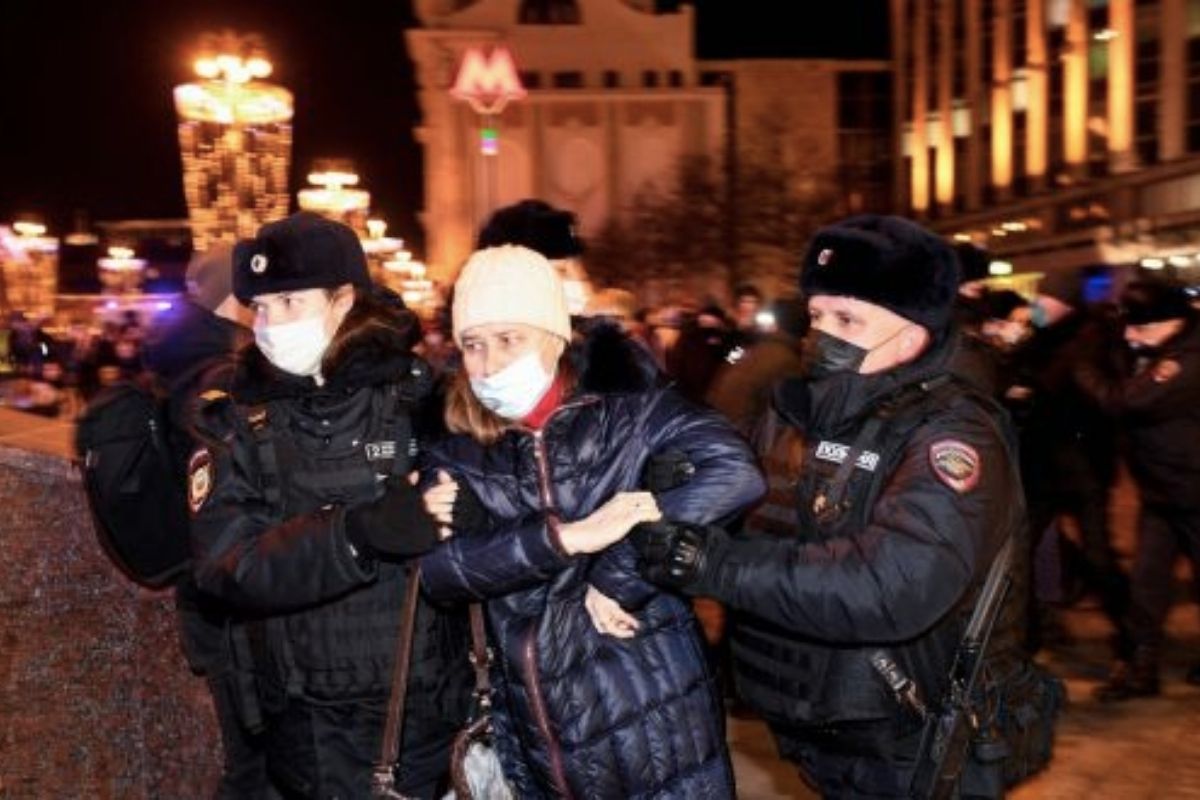Despite the arrests of hundreds of protestors each day by police, Russian anti-war activists came to the streets again on Sunday to condemn Russia’s invasion of Ukraine.
President Vladimir Putin ordered the Russian nuclear deterrent to be put on high alert, boosting the ante in the Kremlin’s standoff with the West and fueling fears of nuclear war. Demonstrators conducted pickets and marched through city centres, screaming “No to war!”
“I have two sons and I don’t want to give them to that bloody monster. War is a tragedy for all of us,” Dmitry Maltsev, 48, told The Associated Press that he was at the demonstration in St. Petersburg.
Protests against the invasion began in Russia on Thursday and have continued every day since, despite Russian authorities cracking down on the gatherings and detaining protestors. The Kremlin has attempted to minimise the demonstrations, claiming that a considerably larger proportion of Russians favour the invasion of Ukraine.
Even though the march in St. Petersburg was peaceful, police in full riot gear grabbed one demonstrator after another and dragged them into police vehicles. Several female demonstrators were thrown to the ground by police in Moscow before being dragged away.
According to the OVD-Info rights group, which records political arrests, police had detained at least 1,474 Russians in 45 locations by Sunday evening as a result of anti-war protests that day.
Read More:
- As Russians Advance Into Ukraine’s Second-largest City, The President Of The Country Appeals To Outsiders To Join The Battle
- Trump Expects “A Great Battle In Europe” And Accuses Biden Of Being Complicit In Russia’s Invasion Of Ukraine
- To Avert A Conflict Near Ukraine, The Us Considers A Hotline
Putin raised the stakes dramatically on Sunday, four days into the fighting that has claimed scores of lives, ordering the military to put Russia’s nuclear forces on high alert, citing Western countries’ “unfriendly actions against our country in the economic sphere” and “top officials from leading NATO members made aggressive statements regarding our country.”
The US and its European allies had warned the day before that the next wave of penalties might entail freezing Russia’s Central Bank’s hard currency holdings and cutting Russia off from the SWIFT international payment system. The extraordinary measure has the potential to throw the Russian economy into disarray.
Ordinary Russians are concerned that harsh sanctions would cripple the country’s economy. Russians have been flocking to banks and ATMs to withdraw cash since Thursday, causing lengthy lineups and social media reports of ATM machines running out of notes.
Russians withdrew 111 billion rubles ($1.3 billion) in cash on Thursday alone, according to Russia’s Central Bank.
The anti-war demonstrations on Sunday appeared to be smaller and more dispersed than those on the first day of Russia’s attack in Ukraine, when thousands of people rallied in Moscow and St. Petersburg, but their true scale was difficult to assess, and they seemed to pick up speed as the day progressed.




